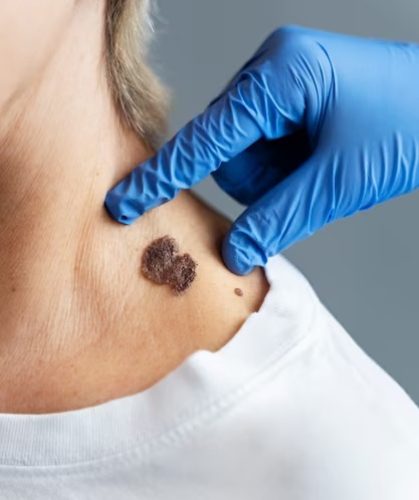Skin Tags and Warts
Skin Tags and Warts
Embracing Clearer Skin with Precision Care

Understanding Skin Tags and Warts:
Skin Tags
Skin tags are small, soft growths that often appear on areas of friction, such as the neck, underarms, or groin. They are benign and typically painless but can be bothersome due to their appearance.
Warts
Warts are caused by the human papillomavirus (HPV) and can manifest in various forms, including common warts, plantar warts, and genital warts. While generally harmless, they can be contagious and may cause discomfort or embarrassment
Benefits of Warts Treatment
Precise Removal
Experience the precise removal of warts, ensuring effective elimination while minimizing the risk of recurrence.
Enhanced Skin Appearance
Improve the overall appearance of your skin by addressing and eliminating warts, restoring smoothness and promoting clearer skin.
Prevent Spread
By treating warts promptly, prevent their spread to other areas of the body or to other individuals, reducing the risk of contagion.
Boosted Confidence
Enjoy a boost in confidence as warts are effectively treated, allowing you to feel more comfortable and at ease in your own skin.
Post-Treatment Care
Nurturing Your Skin's Recovery
01
Gentle Cleansing
Adopt a gentle cleansing routine using mild, fragrance-free cleansers to promote skin healing and prevent irritation to treated areas.
02
Avoiding Irritation
Refrain from activities that may irritate treated areas, such as excessive rubbing or scratching, to allow the skin to heal without complications.
03
Topical Treatments
If prescribed, apply any topical treatments as directed by your dermatologist to aid
in the healing process and prevent infection.
04
Monitoring Healing
Keep a close eye on the healing process, and promptly report any unusual changes or signs of infection to your dermatologist.
Dietary Suggestions
Supporting Skin Health from Within
Vitamin-Rich Diet
Include foods rich in vitamins A, C, and E to support skin health and enhance the body's natural healing processes.
Hydration for Skin
Stay well-hydrated by drinking sufficient water throughout the day, promoting overall skin health and supporting the healing of treated areas.
Zinc Intake
Consume zinc-rich foods like nuts, seeds, and legumes, as zinc plays a role in wound healing and immune function.
Anti-Inflammatory Choices
Incorporate anti-inflammatory foods such as fatty fish, berries, and leafy greens to reduce inflammation and support skin recovery.
General question
Frequently Asked Questions
Illuminating Your Journey
01.
Yes, some types of warts are contagious. It's crucial to seek prompt treatment to reduce the
risk of spreading warts to yourself or others.
02.
While there's no foolproof prevention, avoiding friction and maintaining good hygiene may reduce the likelihood of developing skin tags.
03.
Some may provide relief, but professional treatment ensures more effective and precise removal, reducing the risk of recurrence.
04.
Not always, as some warts may resolve on their own. However, seeking professionaladvice is recommended for proper evaluation and treatment.
05.
It's not recommended to attempt removal at home, as improper methods may lead toinfection or scarring. Professional dermatological care ensures safe removal.
06.
Recurrence is possible, but professional treatment minimizes this risk. Follow-up appointments and proper post-treatment care further reduce the likelihood of warts
returning.
07.
While individual factors vary, maintaining a balanced diet and healthy lifestyle may
contribute to overall skin health and reduce the risk of skin tag development.
